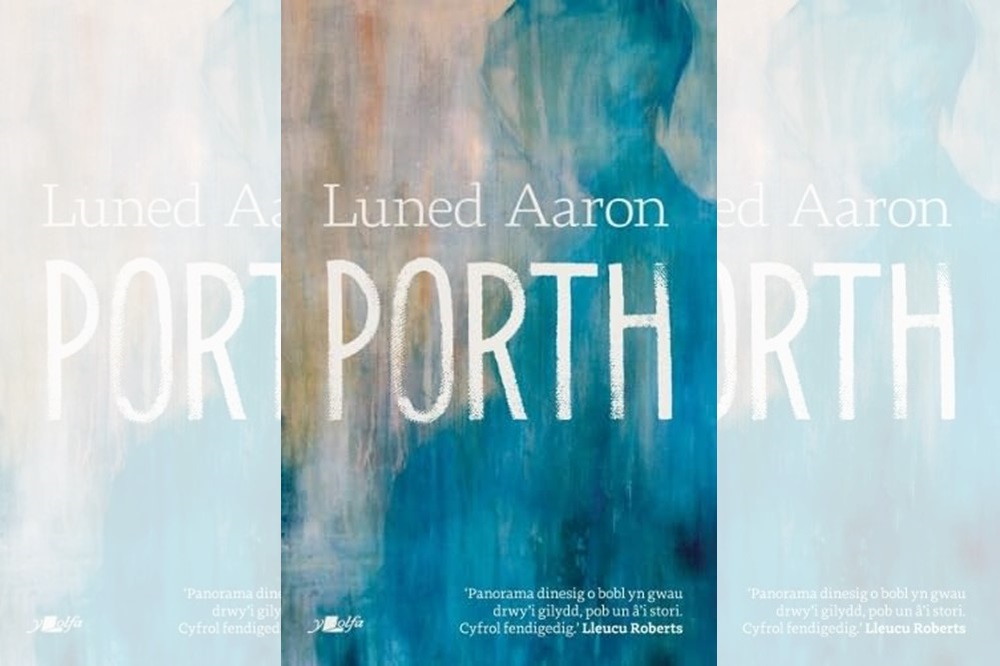Book review: Porth by Luned Aaron

Ant Evans
The fact that this collection of ten short stories set in Cardiff came so close to winning the prose medal at the 2023 National Eisteddfod in Boduan tells you all you need to know about the incredible quality of each of the submissions.
I for one wouldn’t have relished being one of the judges tasked with choosing a winner. In any case, Luned Aaron’s Porth certainly won me over.
The opening story, “Cargo,” is a monologue where an Albanian refugee, a young mother to be, tells her unborn daughter the story of her arduous journey in the back of a truck to get to this strange land in which she now finds herself.
Much as she wanted to forget the journey, our protagonist concedes that “perhaps I have to share these memories with you. You were my travelling companion, after all.”
We find out that her pregnancy was the reason she had to flee: “I’d done my sums, knew with absolute certainty of your existence. Knew instinctively you were a girl. Knew my only option was to escape.”
So the reader eavesdrops as the story of the truck journey unfolds. The discomfort of constantly having to stand, kept in place by boxes, the darkness and then we read of another young woman, Alara who, at journey’s end, was unceremoniously heaved off the truck and escorted away, her fellow traveller in the back of the truck unaware of her fate.
Parents and offspring
Parenting, and the relationships (or lack of them) between parent and offspring is a common thread throughout this collection.
For example, we have the image-conscious Lisa, who’s evidently struggling with her toddler son, Deio. Menna, widowed, struggles to cope with her daughter Carys, and granddaughter, Harmony Rose, living in Norway (I must admit, though we the reader never get any direct input from her, I could very much sympathise with Carys during the story).
Then we have Dan, estranged from his sons following a split with their mother.
Indeed, in the main, these stories are from a parent’s (or would be or soon to be parent’s) perspective.
However, in the penultimate story “Gofal” (Care) the reader is given a look at things from the other side, as Keith visits his frail elderly mother in the care home where she now resides.
Keith opines that had his mother stayed up north, rather than move south after her husband’s health failed, “she could have depended on help from family, rather than having to raise her sons alone, without her husband’s support.”
The sort of would’ve, should’ve, could’ve thoughts which inevitably crop up at such times.
Connections
Another standout aspect in this collection is how the characters from each story are connected in some way.
For instance Sera, of “Steilio Sera Styling” in “Delwedd”, (Image) in addition to helping Dan on his way to a new start, is also mentioned as helping the newbie presenter in “Brecwasta” (to breakfast) “being able to fill bags with the season’s clothes, under Sera’s specialist direction, without having to pay a penny from her own pocket, was something she never imagined could be part of the job description.”
She herself then is seen on the TV screens in the rooms of the residents in the care home where Keith is visiting his mother.
Colloquialisms
As you’d expect in Cardiff, the Welsh speakers in these stories come from all over Wales and this is reflected brilliantly in the colloquialisms that a reader can easily pinpoint to their own part of the country.
Where there’s always a risk of dialectal differences coming across as stiff or shoehorned in, Aaron does this completely naturally here.
Do I have a favourite story in this collection? As much as I’ve very much enjoyed reading each of the stories here, for various reasons, I keep coming back to the three stories which feature the young Albanian refugee and her chats with her unborn daughter.
I’d be intrigued to see how a novel following her journey in her new home would look.
If there’s one thing this collection emphasises for me, it’s the importance of the National Eisteddfod in creating and giving a platform to Welsh language literature, as well as generating valuable feedback from the judges of the various literary competitions.
Where else could writers, both new and more experienced, get such a valuable platform?
Luned Aaron has, in Porth, given us a collection of stories which, whilst short in length, have plenty of depth to both the plots and characters. A must read!
Porth by Luned Aaron is published by Y Lolfa and is available from all good bookshops.
Support our Nation today
For the price of a cup of coffee a month you can help us create an independent, not-for-profit, national news service for the people of Wales, by the people of Wales.






